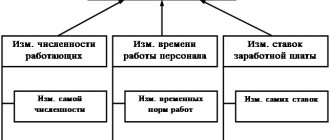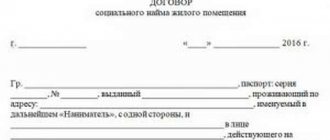What types of state duties are established by tax legislation?
Regulatory documents on taxes and fees provide for the following types of fees for the performance of actions that are significant from the point of view of the law:
- filing a statement of claim in any court;
- appeal for constitutionality review;
- performance of appropriate actions by the notary;
- filing a claim with the arbitration court;
- issuance of documents and their duplicates (passports, seaman’s identity cards, etc., various certificates);
- affixing a special seal that confirms the legal force of the document for its use on the territory of a foreign state (apostille);
- issuing confirmation that the vessel is registered in the Russian International Register of Ships;
- for issuing a copy of the certificate of pledge agreement for the vehicle;
- for various actions with the enterprise (acquisition and alienation, as well as various encumbrances of the enterprise, for registration of ownership);
- for registration by government authorities of rights to real estate, including transactions with them and the establishment of pledges and other encumbrances on real estate;
- for registering the rights of the owner of the land plot;
- for registering a mortgage;
- for registration of a share participation agreement in construction;
- for registration of rights of limited use of other people's property (easements);
- if it is necessary to obtain a permit for the export of historical and cultural values abroad, etc.
What benefits are established for pensioners when paying state duty?
Tax regulations provide for persons who have reached retirement age benefits in the payment of court fees. For example, filing a claim in a court of general jurisdiction for pensioners, disabled people and pensioners is completely free. Also, a pensioner can file a claim free of charge in any other court, as well as for disabled people of group 3 in court. But exemption from the obligation to make the above contribution to the state budget is possible only for one category of cases - those relating to pension provision. This includes claims against the Pension Fund of the Russian Federation, as well as non-governmental organizations similar to it.
IMPORTANT !!! Combat veterans and former employees of various law enforcement agencies are not paid a fee for filing a claim regarding the assignment and payment of pensions to various departments (Ministries of Justice, Internal Affairs and Defense, the Federal Security Service and other government agencies).
There are no preferences for other types of claims specifically for pensioners. There are also no benefits for pensioners when registering property rights, for notarial acts in 2021, etc.
Exemption from payment of state duty depending on the value of the claim
According to one of the articles of the Tax Code that we reviewed at the beginning of the material, defined by number 333.36, in cases where the court is considering cases of the administrative or civil category, and the amount of the claim is up to one million, then the payment of the fee is waived for:
- applicants who filed claims in cases related to the protection of consumer rights;
- public organizations;
- associations of persons with proven disabled status;
- veterans of combat events in cases of military service and protection of their own legal rights;
- pensioners who make material demands to such an official structure as the Pension Fund of our country, as well as to other non-state funds.
If the cost of the statement of claim exceeds the amount of a million Russian rubles, then the persons included in the above list will pay a fee on the monetary difference between a million rubles and the amount of the claim.
In some cases, the small value of the claim may be a reason for exemption from paying court fees.
Please note: according to the Tax Code of our country, the court has the right, based on the real financial situation of the plaintiff, on personal initiative:
- exempt the participant in the proceedings from paying state fees;
- reduce the amount of the requested payment;
- provide an installment plan for payment of monetary value.
Who has the right to count on benefits when collecting state fees for notarial acts?
For the issuance of documents on the inheritance of a real estate property, the heirs do not pay anything to the notary. But there is one condition: they must live together with the testator on the same “square meters”. If the heir lived in another place, then he pays for the notary's services in full. Under any circumstances, minor heirs do not pay the fee.
If municipal authorities or government authorities contact the notary, then they do not pay the state duty.
Organizations of disabled people operating on a voluntary basis are also exempt from paying for notary services.
In the event of the death of employees whose insurance was provided by their employing organization, their heirs do not pay anything to the state.
Notarized registration of FIFA branches and subsidiaries is carried out absolutely free of charge.
Notarization of transactions related to the sale or donation of residential premises in a house undergoing demolition is free of charge.
If a power of attorney is issued to receive pensions and benefits, a notary must certify it free of charge.
IMPORTANT !!! The heirs of military personnel and law enforcement officers, those who died during their service, are exempt from paying the state fee for registering an inheritance.
If housing is purchased in whole or in part using funds from the municipal, regional or federal budget, then such a transaction is certified without paying a state fee.
The notary certifies free of charge copies of documents necessary to obtain benefits for persons wounded while defending the territory of the Russian Federation and the USSR.
Judge: Melnikov A.N.
Case No. 33-5104
APPEAL DECISION
Judicial panel for civil cases of the Perm Regional Court consisting of:
Chairman Valueva L.B.,
Judges Zarivchatskaya T.A., Lapukhina E.A.,
Under secretary Baskal V.S.,
Having considered in open court in Perm on May 16, 2018 a civil case based on a private complaint from the Federal State Institution Correctional Colony No. 12 with special conditions for economic activities of the Main Directorate of the Federal Penitentiary Service for the Perm Territory against the ruling of the Gubakhinsky City Court of the Perm Territory dated March 20, 2021 year, which decided:
“Return to FKU IK-12 OUCD GUFSIN of Russia for the Perm Territory the appeal against the decision of 02/12/2018 of the Gubakha City Court in civil case No. 2-111-2018.”
Having studied the case materials, having heard the report of Judge L.B. Valueva, the judicial panel
Installed:
FKU IK-12 OUCD GUFSIN of Russia for the Perm Territory filed an appeal against the decision of the Gubakhinsky City Court dated February 12, 2018 in civil case No. 2-111-2018.
By a court ruling dated March 14, 2018, this appeal was left without progress with reference to a violation of the requirements of Part 4 of Article 322 of the Civil Procedure Code of the Russian Federation regarding the payment of state duty; the applicant was given a period until March 19, 2018 to eliminate these shortcomings.
On March 16, 2018, FKU IK-12 OUCD GUFSIN of Russia for the Perm Territory submitted a request for exemption from payment of state duty in accordance with paragraph 19, paragraph 1, article 333.36 of the Tax Code of the Russian Federation.
By a court ruling dated March 19, 2018, the request of FKU IK-12 OUCD GUFSIN of Russia for the Perm Territory for exemption from payment of state duty was denied.
Returning the appeal in accordance with Part 1 of Article 324 of the Civil Procedure Code of the Russian Federation, the court of first instance proceeded from the fact that the applicant did not pay the state duty and did not comply with the court’s instructions within the prescribed period.
In a private complaint against this determination, the applicant indicates that the appealed determination violates the procedural rights of PKU OIK-12 OUCD GUFSIN of Russia for the Perm Territory. The court's conclusion that the applicant cannot be exempted from paying state fees is erroneous.
Having checked the arguments of the private complaint, the judicial panel finds the court's ruling subject to cancellation.
In accordance with Part 3 of Art. 333 of the Civil Code of the Russian Federation, a private complaint is considered without notifying the persons participating in the case.
According to Part 4 of Art. 322 of the Civil Procedure Code of the Russian Federation, a document confirming payment of the state fee is attached to the appeal complaint, if the complaint is payable.
Part 1 of Article 323 of the Civil Procedure Code of the Russian Federation stipulates that when filing an appeal that has not been paid the state fee, the judge issues a ruling by which the complaint or presentation is left without progress, and assigns the person who filed the complaint or presentation a reasonable period to correct the deficiencies.
Article 89 of the Civil Procedure Code of the Russian Federation determines that benefits for the payment of state duties are provided in cases and in the manner established by the legislation of the Russian Federation on taxes and fees.
Subparagraph 19 of paragraph 1 of Article 333.36 of the Tax Code of the Russian Federation provides that state bodies, local government bodies acting as plaintiffs or defendants.
Federal state authorities, state authorities of constituent entities of the Russian Federation and local self-government bodies are exempt from paying state duty when they apply for legally significant actions established by Chapter 25.3 of the Tax Code of the Russian Federation, with the exception of cases provided for in subparagraph 124 of paragraph 1 of Article 333.33 of this Code. (subparagraph 4 of paragraph 1 of Article 333.35 of the Tax Code of the Russian Federation)
Based on paragraph 1 of Article 11 of the Tax Code of the Russian Federation, the institutions, concepts and terms of civil, family and other branches of legislation of the Russian Federation used in the Tax Code of the Russian Federation are applied in the meaning in which they are used in these branches of legislation, unless otherwise provided by the Tax Code Code of the Russian Federation.
In accordance with current legislation, classification as government bodies is carried out by legislative acts of the Russian Federation and Decrees of the President of the Russian Federation.
Decree of the President of the Russian Federation dated May 21, 2012 N 636 “On the structure of federal executive authorities” approved the attached structure of federal executive authorities (clause 17 of the Decree), which, among other things, includes the Federal Penitentiary Service, whose activities are managed by the President of the Russian Federation Federation.
Decree of the President of the Russian Federation dated October 13, 2004 N 1314 “Issues of the Federal Penitentiary Service” approved the Regulations on the Federal Penitentiary Service, paragraph 1 of which establishes that the Federal Penitentiary Service (FSIN of Russia) is a federal executive body exercising law enforcement functions, functions for control and supervision in the field of execution of criminal penalties in relation to convicted persons, functions for the maintenance of persons suspected or accused of committing crimes, and defendants in custody, their protection and escort, as well as functions for monitoring the behavior of suspended sentenced persons and convicts who the court granted a deferment of serving the sentence, and to monitor the presence of persons suspected or accused of committing crimes in places of execution of a preventive measure in the form of house arrest and their compliance with the prohibitions and (or) restrictions imposed by the court.
According to paragraph 5 of the Regulations on the Federal Penitentiary Service, approved by Decree of the President of the Russian Federation of October 13, 2004 N 1314, the Federal Penitentiary Service of Russia carries out its activities directly and (or) through its territorial bodies, institutions executing sentences, pre-trial detention centers, as well as enterprises and institutions and organizations specially created to ensure the activities of the penal system.
The main tasks of the Federal Penitentiary Service of Russia, as indicated in paragraph 3 of the said Regulations, are, among other things, monitoring the behavior of convicts and ensuring law and order and legality in institutions executing criminal penalties.
Clause 1 of the order of the Federal Penitentiary Service of the Russian Federation dated May 19, 2006 N 245 approved the Regulations for the Federal Penitentiary Service.
Clause 1.3 of these Regulations establishes that the Federal Penitentiary Service is a federal executive body that carries out law enforcement functions, control and supervision functions in the field of execution of criminal penalties in relation to convicted persons, functions for the detention of persons suspected or accused of committing crimes, and defendants, those in custody, their protection and escort, as well as the functions of monitoring the behavior of probationers and convicts who have been granted a deferment by the court.
Clause 1.11 of the Regulations determines that the FSIN of Russia carries out its activities directly and (or) through its territorial bodies - departments of the Federal Penitentiary Service (UFSIN of Russia) in federal districts, departments (main departments) of the Federal Penitentiary Service (UFSIN of Russia, GUFSIN of Russia) for the constituent entities of the Russian Federation (hereinafter referred to as territorial bodies), institutions executing punishments.
Taking into account the above norms of legislation, taking into account the goals and objectives of FKU IK No. 10 of the GUFSIN of Russia in the Perm Territory, which is part of the structure of the FSIN of Russia, as a federal executive body vested with state functions for the execution of punishment, for correctional institutions, including correctional colonies, The exemption for payment of state duty established by subclause 19 of clause 1 of Article 333.36 of the Tax Code of the Russian Federation is fully extended.
At the same time, the status of a legal entity in the organizational and legal form of a federal government institution, a subject of civil legal relations, has no legal significance for the performance by it of state functions of a subject of public legal relations, and therefore does not affect the opportunity to implement the benefits provided for by the legislation on taxes and fees for the payment of state duties in relation to legal relations arising when the specified legal entity exercises state functions.
Taking into account the above, the court of first instance did not have any grounds provided for by law to return the appeal to FKU IK-12 OUHD GUFSIN of Russia for the Perm Territory on the basis of non-fulfillment of the judge’s requirements set out in the ruling on leaving the appeal without progress, on the grounds of non-payment of the state fee.
Verifying the argument of the private complaint about the groundlessness of the refusal to satisfy the application for exemption from paying the state duty, the judicial panel notes that, while refusing to satisfy the application for granting a deferment in the payment of the state duty, the court did not take into account the applicant’s exemption from paying the state duty, in connection with which the discussion the expediency of granting a deferment was not required.
In this situation, the judge’s ruling cannot be considered legal and justified; it is subject to cancellation.
Guided by Art. 334 Civil Procedure Code of the Russian Federation, judicial panel
determined:
The ruling of the Gubakhinsky City Court of the Perm Territory dated March 20, 2021 on the return of the appeal of PKU IK-12 OUHD GUFSIN of Russia for the Perm Territory against the decision of the Gubakhinsky City Court of the Perm Territory dated February 12, 2021 is cancelled.
The civil case should be sent to the Gubakhinsky City Court of the Perm Territory to carry out the procedural actions provided for in Art. 325 Code of Civil Procedure of the Russian Federation.
Chairman:
Judges:
What relaxations are established for the population when making appeals to the judicial system?
Full holders of the Order of Glory, as well as Heroes of the Russian Federation and the USSR, are exempt from paying state fees of any kind, including payment for filing an application for the restoration of a violated right to justices of the peace, to a court of general jurisdiction or an arbitration court, as well as in cases of verification of constitutionality - to the Constitutional Court of the Russian Federation .
Prisoners of war, prisoners of concentration camps, veterans and disabled people of the Great Patriotic War are completely exempted by regulatory documents from making contributions for any legally significant actions, including judicial review.
A statement of claim for the fulfillment of alimony obligations and arrears of wages, for compensation for harm caused to health, moral harm and property damage as a result of a crime or criminal prosecution is filed without paying a state fee.
IMPORTANT !!! A consumer whose rights have been violated has the right to seek legal protection absolutely free of charge.
Military veterans have a 100% discount on state fees, but only regarding their veteran's rights in court.
Victims of state repression and rehabilitated persons are deprived of the obligation to pay state duty, but only in court cases regarding the application of rehabilitating regulatory documents.
Refugees and forced migrants have the right to submit free applications stating that the relevant government bodies do not recognize them as such.
The legal representatives of the child, who protect his violated rights, do not pay a fee for filing a claim in accordance with the norms of tax legal acts.
Filing an application to the court to obtain permission to adopt a child is absolutely free.
Benefits for certain categories of individuals and organizations for paying state duty
Free legal consultation!
1. The following are exempt from paying state duty:
1) federal government bodies, state extra-budgetary funds of the Russian Federation, budgetary institutions and organizations fully financed from the federal budget, media editorial offices, with the exception of advertising and erotic media, all-Russian public associations, religious associations, political parties - for the right to use the names “Russia”, “Russian Federation” and words and phrases formed on their basis in the names of these organizations or associations;
2) courts of general jurisdiction, arbitration courts and magistrates - when sending (submitting) requests to the Constitutional Court of the Russian Federation;
3) courts of general jurisdiction, arbitration courts and magistrates, government bodies of a constituent entity of the Russian Federation - when sending (submitting) applications to the constitutional (statutory) courts of constituent entities of the Russian Federation;
4) a federal executive body, an executive body of a constituent entity of the Russian Federation or a local government body - during state registration of issues (additional issues) of state or municipal securities;
5) The Central Bank of the Russian Federation - upon state registration of issues (additional issues) of equity securities, the issue of which is carried out by it in order to implement a unified state monetary policy in accordance with the legislation of the Russian Federation;
6) organizations - during state registration of issues (additional issues) of equity securities, the issue of which is carried out by them for the purpose of restructuring debt obligations to budgets of all levels (during the validity of the agreement on the restructuring of such obligations), if such securities are transferred and ( or) are encumbered in favor of an authorized executive body on the basis of an agreement on the repayment of arrears of payments to budgets of all levels;
7) organizations - during state registration of issues (additional issues) of equity securities put into circulation when the authorized capital is increased by the amount of revaluation of fixed assets carried out by decision of the Government of the Russian Federation;
8) state and municipal museums, archives, libraries and other state and municipal repositories of cultural property - for the right to temporarily export cultural property located in their funds for permanent storage;
9) individuals - authors of cultural property - for the right to export (temporary export) cultural property;
10) state authorities, local government bodies - for affixing an apostille, as well as for state registration of organizations and for state registration of changes in the constituent documents of organizations, for state registration of liquidation of organizations;
11) individuals - Heroes of the Soviet Union, Heroes of the Russian Federation and full holders of the Order of Glory - in cases considered in courts of general jurisdiction, by magistrates, in the Constitutional Court of the Russian Federation, when applying to authorities and (or) officials performing notarial actions, and to the bodies carrying out state registration of acts of civil status;
12) individuals - participants and disabled people of the Great Patriotic War - in cases considered in courts of general jurisdiction, by magistrates, in the Constitutional Court of the Russian Federation, when applying to bodies and (or) officials performing notarial acts, and to bodies, carrying out state registration of acts of civil status;
13) an individual - a citizen of the Russian Federation, who is the sole author of a computer program, database and topology of an integrated circuit and the copyright holder thereof, requesting a certificate of registration in his name, if such an individual is a veteran of the Great Patriotic War;
14) an individual - a citizen of the Russian Federation, who is the sole author of a computer program, database, topology of an integrated circuit and the copyright holder thereof, requesting a certificate of registration in his name, if such an individual is a disabled person, a student (pupil) of educational institutions (regardless of their form of ownership) - for performing actions provided for in paragraphs 4 - 7 of Article 333.30 of the Tax Code. The benefit provided for by this subparagraph is also provided to a team of authors, copyright holders, each member of which is disabled, or a participant in the Great Patriotic War, or a disabled person in the Great Patriotic War;
15) individuals recognized as low-income in accordance with the Housing Code of the Russian Federation - for performing actions provided for in subparagraph 20 of paragraph 1 of Article 333.33 of the Tax Code, with the exception of state registration of restrictions (encumbrances) of rights to real estate.
2. The basis for providing benefits to individuals listed in subparagraphs 11 and 12 of paragraph 1 of this article is a certificate of the established form. The benefits provided for in subparagraphs 13 and 14 of paragraph 1 of this article are provided at the request of the author (authors). The basis for granting benefits are copies of relevant documents: a certificate of a veteran of the Great Patriotic War (participant in the war), a certificate of medical and social examination, a document issued by an educational institution. An application for the provision of these benefits is submitted instead of a document confirming payment of the state duty, if the benefit is an exemption from its payment, or together with the specified document. The basis for granting the benefit provided for in subparagraph 15 of paragraph 1 of this article is a document issued in the prescribed manner.
3. State duty is not paid in the following cases:
1) for issuing an invitation to enter the Russian Federation for a foreign citizen or stateless person for the purpose of studying at a state or municipal educational institution;
2) for extending the validity period of a temporary residence permit in the Russian Federation for a foreign citizen or stateless person who arrived in the Russian Federation for the purpose of carrying out charitable activities or delivering humanitarian aid or due to circumstances related to the need for emergency treatment, serious illness or the death of a close relative ;
3) for the export of cultural property reclaimed from someone else’s illegal possession and returned to the owner;
What discounts for the type of contribution in question are provided for the services of civil registry offices?
The following actions of the registry office bodies that are significant from the point of view of law do not require any payments:
- recording the facts of birth and death, as well as issuing relevant documents;
- issuing certificates stating that the registration books do not contain records of legally significant facts (birth, death, marriage, etc.);
- for updating the child’s birth record during adoption;
- for issuing new documents to replace those in which inaccuracies were made by the civil registry office employees, and correcting entries incorrectly entered into the registration books;
- for issuing certificates to pension funds for assignment and recalculation of pensions.








